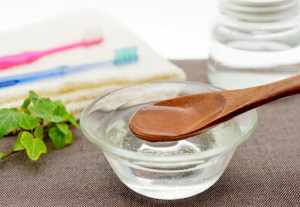Our teeth are invaluable members to the human experience. Not only does their presence allow us to properly bite, chew, and digest food, they assist us in communication through proper speech and enunciation, and not to mention a healthy smile will enhance anybody’s self-confidence!
Due to the fundamental functions they provide, when issues arise which threaten the integrity of the teeth, it can drastically alter our ability to perform the most basic of tasks- limiting our quality of life in the process.
The Major Leading Causes
A relatively common, yet vexing condition, is tooth sensitivity. This condition will trigger a sharp and debilitating sensitivity through mere common activities like brushing, eating, and drinking- especially with cold substances! It’s crucial to visit a trusted dental professional if this is something you’re experiencing, as there are a multitude of reasons which may result in this painful experience, some of which include;
Cavities
Undiagnosed or untreated cavities, especially those left untouched long enough to develop significantly can begin to damage the inner layers of the tooth. This will undoubtedly cause sharp pain and discomfort, as tooth decay seriously impacts the structure of the affected area.
Worn Enamel
The outermost layer of the tooth, the enamel encases the more sensitive areas below with the most durable material found in the entire human anatomy. As the enamel wears away due to poor oral care habits or dietary and lifestyle choices, it exposes the more delicate layers beneath and is commonly accompanied with cold sensitivity.
Cracks or Chips
Not only does a fractured tooth carry an increased risk for cavity development, it also lays bare the more sensitive areas of the tooth beneath the surface enamel. These areas, the dentin and pulp, are extremely sensitive; as they contain precious nerves and blood vessels that cause significant pain if exposed to different elements and substances.
Worn Fillings
Once filled cavities could potentially deteriorate over time, especially through a continuous neglect of oral care. This reopens the gaps created by previous cavities and exposes a breeding ground for bacteria and plaque to fester in, and yes, it can feel unpleasant.
Gum Disease
Any form of periodontal (gum) disease such as gingivitis may result in a heightened sensitivity throughout the teeth. As the gums become inflamed, they lose supporting ligaments, which results in the exposure of the root surface- a direct gateway to the nerve of the tooth!
Impactful Remedies
With the main culprits laid out and explained in detail, it might be reassuring to hear that most cases of tooth sensitivity can be rectified! If you’re struggling with any major systemic issues like cavities, fractured teeth, or gum disease, its important to realize only a dental professional is equipped to remedy your pain.
For others, tooth sensitivity may pose as a more underlying issue not brought upon by any drastic ailments. Mild tooth sensitivity is relatively common as patients age, this is because much like our nails, hair, and skin, our teeth’s enamel naturally weakens as the years progress. In that case, there are a plethora of accessible remedies to try to lessen tooth sensitivity and help restore some of the function back into your precious smile.
Tooth paste
Thankfully there are a plethora of products locally available virtually anywhere to help alleviate tooth sensitivity. Some of the most common and successful of these include certain toothpaste brands which incorporate special ingredients to target tooth sensitivity and substantially lessen it. Most notably, is Sensodyne, which has a celebrated and proven track record.
These types of toothpastes usually contain either potassium nitrate or stannous fluoride within their composition. These chemicals assist in soothing nerves while reducing pain signals and build a protective layer over exposed areas of dentin respectively.
Soft bristle ToothBrush
Less abrasive tooth brushing methods are recommended to help alleviate sensitivity. Brushing the teeth too vigorously, especially with hard bristled brushes, can activate painful sensations along the enamel and gums. In order to best remedy this, while still performing the necessary brushing twice a day recommended by the dental industry, its best to invest in a soft-bristled brush with angled or multi-layered bristles to ensure your teeth are gently cleansed of bacteria and plaque buildup.
Saltwater rinse
Sometimes we mustn’t search too far for remedies, as nature can provide us with a saving grace. Probably located in everybody’s kitchen pantry, this mineral can not only lower sensitivity but increase the PH level of the oral anatomy when rinsed, improving the state of your oral health!
It’s recommended to use half to no more than a full teaspoon with a lukewarm glass of water. Once mixed, proceed to swish it around your mouth for thirty seconds and spit it out when finished- be careful not to swallow! Salt acts as a capable antiseptic, reducing bacteria development and also lowering inflammation throughout the gums.
Oil Pulling
This method has risen in popularity in recent times; however, it is an ancient practice dating back over three thousand years. It is usually performed with one tablespoon of coconut oil, where the oil is worked throughout the mouth and teeth through a pulling, pushing, and sucking motion, and spitting it out once completed.

The oil acts as a sticky magnet, drawing out dangerous and hard to reach bacteria which may be contributing to your sensitive smile. Substantial studies recently published have identified oil pulling as an effective method to reduce the severity of gingivitis and tooth decay, due to the lauric acid it contains.
Visit Your Dentist
While the aforementioned practices have a proven track record in reducing tooth sensitivity, your best line of defense will always remain your dentist! If you’re experiencing any type of pain, discomfort, or sensitivity, its important to get a professional opinion to dictate the cause and eventual solution.
Its crucial to participate in your semiannual dental checkups, and practice robust and routine oral habits like brushing and flossing throughout the day! These principles may sound repetitive, but they are the closest guarantee your smile remains sensitivity free.
Remember…
Teeth sensitivity can range in severity; wherever yours may fall on the spectrum, it still impacts the function and convenience your smile is intended to offer you throughout your daily activities. Please don’t hesitate to book an appointment with one of our talented dental professionals today, as we would be happy to alleviate your oral sensitivity and strengthen your smile’s integrity.





















